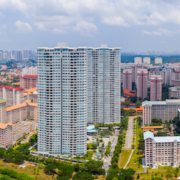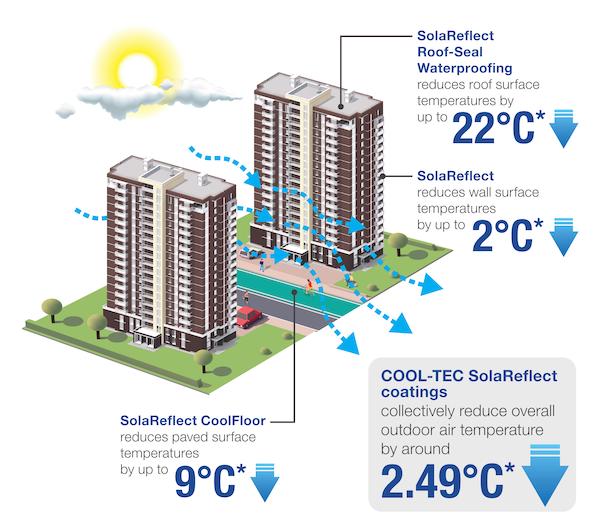Aiming for Net-Zero Emissions by 2050: Nippon Paint Unveils Green Plan

Global warming is a clear threat to the environment and humanity. The increase in atmospheric temperature (climate change) today has serious consequences for all life on Earth. Many people worldwide are aware of and urgently tackling this issue. Nippon Paint, Asia’s no. 1 and the world’s fourth largest paint manufacturer and distributor has recognised the causes and effects of the climate crisis for decades. Therefore, it expresses its commitment by unveiling its mission to achieve net-zero emissions by 2050 with the ‘Green Plan,’ hoping to reduce greenhouse gas emissions from energy sources used in production.
Roadmap to Net Zero 2050
Nippon Paint adheres to the Green Plan, which includes implementing green processes and using green products, aligned with the principles of global sustainability encompassing the environment, society, and economy. This plan covers both innovation and consumers as well, following 9 UNSDGs principles. Combined with the ‘smart framework’ strategy, it emphasises sustainability in business operations and value chains and promotes a culture of environmental responsibility and equality within the organisation. This agenda is crucial for becoming fully net zero by 2050.
Green Process
Direct greenhouse gas emissions will be reduced under the ISO 14001:2015 environmental management system with the following strategies:
- Energy: Installing solar panels on the factory roof will reduce carbon emissions by more than 600,000 kilograms per year, equivalent to absorbing carbon dioxide from planting over 60,000 trees. Alternative energy from solar cells can produce over 1.4 MW of electricity per year. There will also be a switch to battery-powered forklifts instead of diesel-powered vehicles.
- Water Conservation: Water is essential for manufacturing processes. Nippon Paint promotes wastewater treatment by reusing properly treated wastewater. This can reduce water use by more than 840,000 litres per year, equivalent to flushing the toilet over 70,000 times. Nippon Paint has also installed soil and leak testing kits to reduce environmental problems. Different types of conventional wastewater treatment are as follows: Water that cannot be reused or recycled is disposed of according to industrial waste regulations and stored by a licensed service provider for additional treatment per local laws. Water that must be treated before disposal, such as laboratory water is treated in a dilution tank and tested before release as public wastewater. Water that can be drained directly, such as water from bathrooms and sinks, is connected to the public sewage system.
- Reducing Air Pollution: A large dust collector machine reduces dust produced in the factory by 3,000 kilograms per year.
- Waste Disposal: Waste disposal methods vary depending on the type of waste and recyclable materials. Waste is either reused or recycled by the appropriate contractor or managed internally. Nippon Paint emphasises waste separation and proper disposal, conducting impact assessments under ISO 14001 standards and local waste disposal laws to craft effective waste management plans.

Green Process and Green Product
Nippon Paint’s paint system and innovative products aim for low carbon emissions in the following ways:
- Paint System: Reducing embodied carbon through certified carbon footprint products offers solutions for lowering carbon during construction. Energy-saving paint technology, reducing building improvement needs, and certifying high-efficiency energy-saving labels help reduce carbon emissions.
- Colour Innovation: Paint products are guaranteed to have safe paint labels or are GREEN CHOICE, free of pungent odours (low VOCs), which improve LEED v4.1 and WELL v2 scores. These innovations help reduce job site waste and dust, enhancing quality of life and environmental safety. Nippon Paint has strengthened 40 brands with a certified CFP carbon footprint label, indicating carbon release throughout the product lifecycle.

Latest Environmental Campaign: Revitalize the World
Nippon Paint recently launched the ‘Revitalize the World’ campaign, promoting sustainability through vibrant colours representing nature. This campaign highlights the current environmental challenges and encourages collective efforts to reduce climate change, promoting sustainability and equality. Nippon Paint is dedicated to its mission of achieving net-zero emissions by 2050 and creating a sustainable environment for all.




